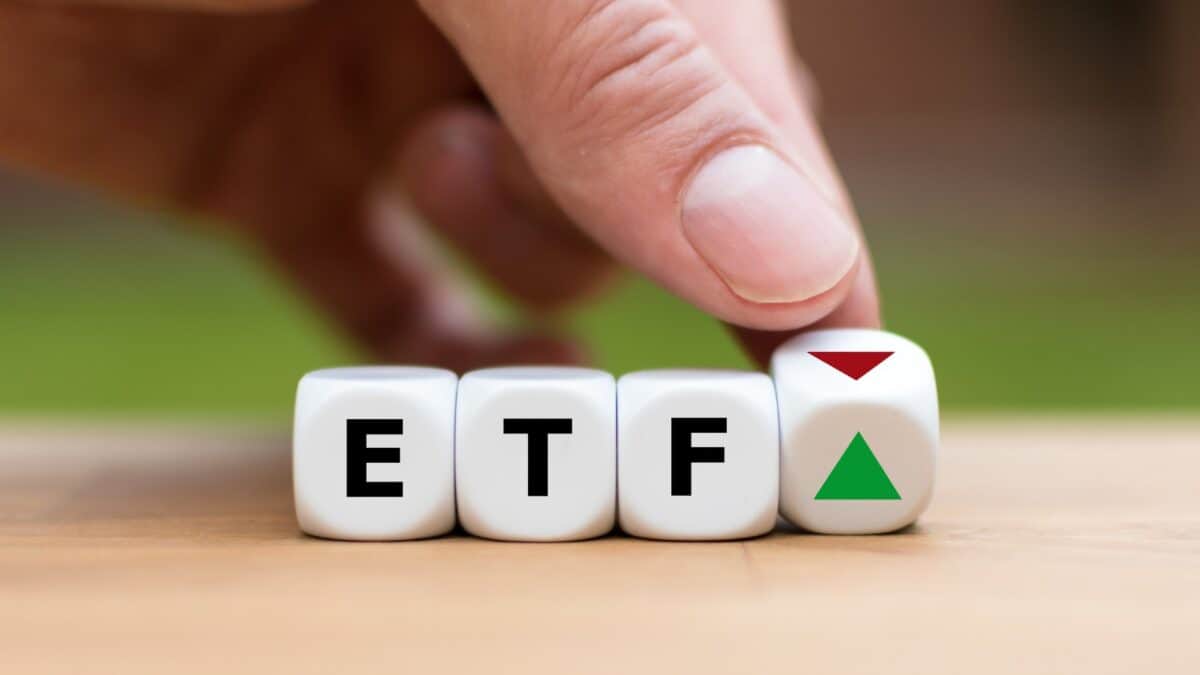Exchange traded funds (ETFs) are popular tools investors can use to get exposure to a basket of stocks, bonds or alternatives, simply from buying one listed fund.
It can be used as a passive way to track an index like the FTSE 100, or to target a specific sector, such as dividend stocks. Here’s a couple I’m watching right now for passive income potential.
Tapping into the property market
The first one is the iShares MSCI Target UK Real Estate (LSE:UKRE). This fund’s essentially a pool of real estate investment trusts (REITs). Normally, I’d try and pick my favourite REIT from a selection of them. However, the ETF gives me a fairly unique way of getting a little bit of everything.
Should you invest £1,000 in Boohoo Group right now?
When investing expert Mark Rogers has a stock tip, it can pay to listen. After all, the flagship Motley Fool Share Advisor newsletter he has run for nearly a decade has provided thousands of paying members with top stock recommendations from the UK and US markets. And right now, Mark thinks there are 6 standout stocks that investors should consider buying. Want to see if Boohoo Group made the list?
It includes 36 holdings, with some popular names such as Land Securities Group and Segro. Yet it has a host of others that allows me to get wider exposure of real estate investments, ranging from commercial sites to private areas.
From the leasing out of locations, the REITs generate income that is paid out to shareholders. This means the ETF has a high dividend yield, which is currently 6.73%.
Over the past year, the ETFs risen by 11%. This acts as an added bonus on top of the dividend income. Looking forward, I think the UK property market’s over the worst and should have robust demand in the years to come.
One risk is if interest rates continue to stay higher for longer. Given these real estate companies have debt in order to fund property purchases, higher interest rates make it more expensive to do so.
The best of British
Another ETF I like is iShares UK Dividend ETF (LSE:IUKD). The fund does what it says on the tin, namely invests in FTSE stocks that pay out a dividend. The current dividend yield’s 5.56%, with the ETF up 18% over the past year.
It currently has 50 holdings with a few of the largest being HSBC, Imperial Brands and British American Tobacco. These are all large-cap companies that have generous income payouts. Some might ask why not buy these individually? It’s possible to do this, but a definite hassle. Further, the transaction costs of buying 50 stocks is much higher than just buying the ETF.
It’s a high, passive income option as the FTSE 100 average dividend yield is 3.59% and the FTSE 250 is 3.26%.
The risk is that the ETF might include a stock I’m not comfortable holding. This might be due to ESG criteria, for example not wanting to invest in a tobacco company. Or it could simply be a firm I think will cut the income payments in the future. With the fund, I can’t exclude it, which could pose a risk.
Both funds are on my watchlist to consider buying this month.







